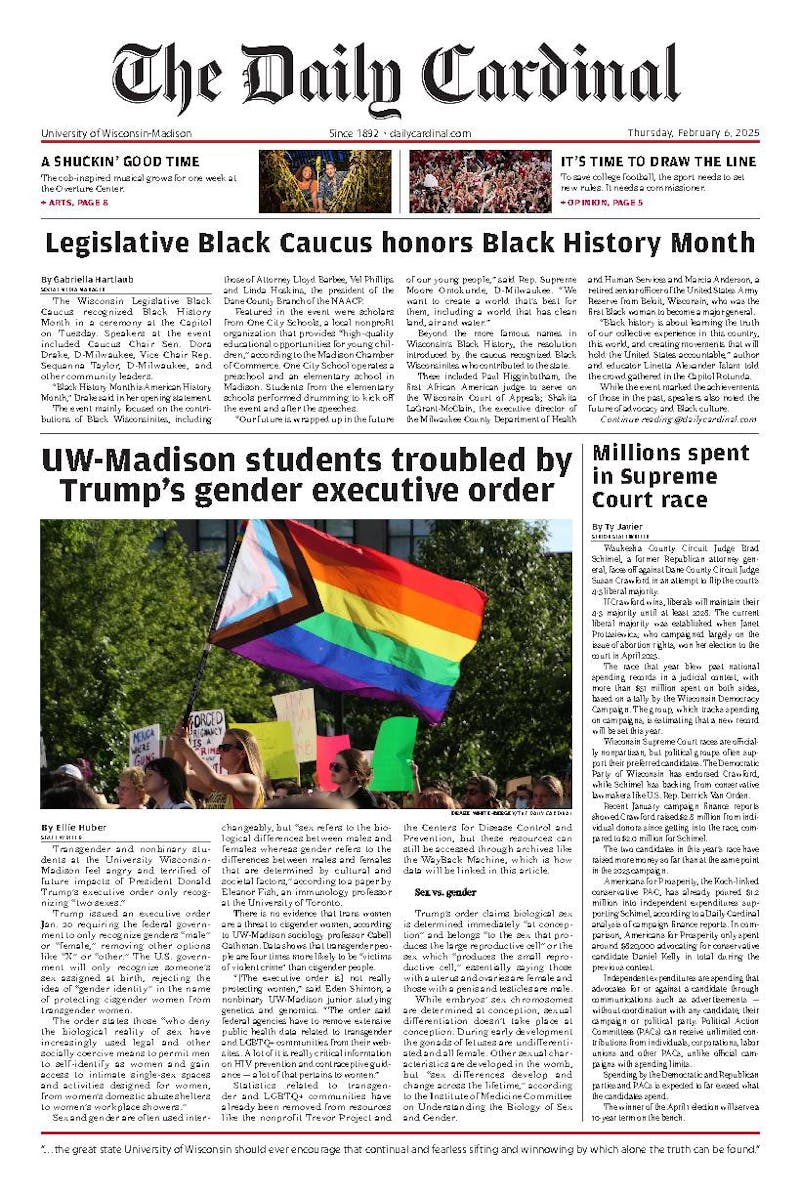One day after last Tuesday's election, Gov. Jim Doyle halted work on the $810 million high-speed rail project—believing the rail can't move forward when the state and Washington D.C. are not cooperating partners. With this suspension, Doyle made the right choice considering the poor state of Wisconsin's current economic status.
While it is true that the project is funded by a federal stimulus grant, Wisconsin taxpayers are going to end up paying more than they bargained for. The yearly operating costs to uphold the rail reach an estimated $7.5 million. Because the stimulus money only covers construction and materials, Wisconsin will have to pick up that tab with money the state can no longer afford, considering its multi-billion dollar deficit.
If the experience of Amtrak is any example, then Wisconsin should realize the new train will lose money and perpetually siphon taxpayer dollars. The Cato Institute estimates total subsidies for a single Madison to Milwaukee ticket to be $68. This new rail line would act as a drain on Wisconsin's resources, much like Amtrak has to the federal government since the 1970s.
The general public lacks a true demand for a rail line, dooming the project. The voters of Wisconsin expressed their discontent by voting Walker, who campaigned to turn the rail money into funds for road construction. The Department of Transportation estimated that only 40 percent of the seats will be filled ten years after the project is completed. This tells me that most of Wisconsin realizes that the rail line doesn't deserve priority on the political agenda.
And without true enthusiasm for the project, the state of Wisconsin will never see the real benefits. The jobs created will be lost when high-speed rail has to make budget cuts to keep it out of debt. Because it is unlikely to significantly slow the use of cars, the possible environmental benefits might never be realized. Furthermore, people will see no substantial benefits outweighing the costs to taking the train— taking a bus will ultimately be cheaper than the proposed $30 one-way ticket to Milwaukee.
Public rail transportation may be viable in some areas, but the Madison to Milwaukee route is not a long enough distance to justify a high-speed line. The availability of frequent bus rides to Milwaukee makes me question the need to spend $810 million to get passengers from the two cities via public transportation in such hard economic times.
And it can be argued that if Walker is willing to cancel rail construction, he will still need to find ways to substitute the jobs lost from the project in Wisconsin. According to Gov. Doyle, that is thousands of temporary jobs and 55 permanent jobs. Canceling one infrastructure project doesn't make Walker an advocate against them. Walker will still aim to invest in infrastructure, like road reconstruction, to create short-term jobs. Lowering taxes on early investments can spur private sector businesses and lay down roots in Wisconsin to create permanent jobs.
Furthermore, Walker must continue to fight for the money to fund the state's highways, a major component in his campaign. I remember a time when riding on Illinois' highways could be compared to riding over railroad tracks and Wisconsin's roads were like tile floors. Because this is no longer the case in many areas of Wisconsin, the problem deserves priority. But these funds will not be easy to come by and will require a lot of political maneuvering. But since Walker promised the citizens of Milwaukee reconstruction, this is an issue he will have to deal with.
The people of Wisconsin elected Walker to bring in new private sector jobs and help fund and repair existing infrastructure that needs improvement, like telecommunication networks and highways. Wisconsin cannot expand while what it has is currently falling apart.
In a different situation I would support this project, but construction is not viable in our current economic situation.
Because the economy is hurting, this project should be pushed to the back burner. Wisconsin needs to focus on keeping what infrastructure it has the best it can be, while building private sector jobs and finding ways to rid the increasing deficit. When this happens and public support grows from its current level, the prospect of the rail line can be rethought.
Matt Beaty is a sophomore majoring in math and computer science. Please send all feedback to opinion@dailycardinal.com.






